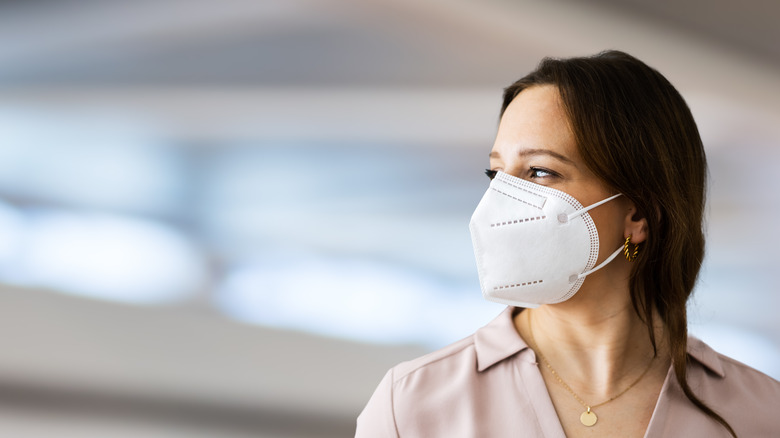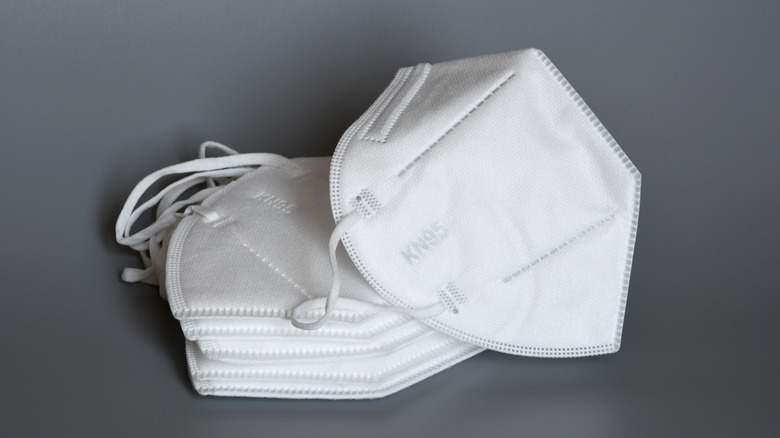How Long Does An N95 Mask Last Before You Have To Throw It Out?
Experts recommend swapping out your cloth masks for N95 face masks to help reduce the spread of COVID-19. The omicron variant has spread rapidly, with nearly 64 million people becoming infected in the past 30 days, per the Centers for Disease Control and Prevention (CDC). However, the N95 masks might be less appealing because they are considered single-use masks and are more expensive than cloth masks. The CDC doesn't recommend one type of mask, only offering some advice for whichever mask you choose — making sure it fits snugly and completely covers your nose and mouth.
However, a 2020 study published in Pathogens found that cloth face masks are only about 50% effective at filtering virus particles while N95 face masks are approximately 99% effective. This is why many experts are now recommending N95 masks.
N95 masks are better at filtering tiny particles than cloth masks due to the materials such as polypropylene fibers that create an air barrier. The only difference between KN95 masks and N95 masks is where they are certified. KN95 masks are certified in China, and N95 masks are certified in the United States by the National Institute for Occupational Safety (NIOSH) (via the Oklahoma State Department of Health). However, you have to be careful because about 60% of KN95 face masks are counterfeits, according to the CDC. Check with NIOSH to ensure the N95 or KN95 mask meets their requirements, so you don't end up with a fake.
How to reuse an N95 mask
President Joe Biden said the United States will provide high-quality masks for free, citing the importance of masks for reducing the spread of COVID-19, especially with the highly contagious omicron variant. He will announce how that will happen next week (via CNN). In the meantime, here's how you can make the most of your N95 face masks.
An engineering professor at Virginia Tech, Linsey Marr, says she wears hers for a week and notes that wearing one for about 40 hours before replacing it is fine. The N95 mask's ability to filter viruses isn't going to be compromised unless you poke holes in it or rub it. The mask will likely "get gross" from wear before it loses its filtration ability. N95 masks are single-use because they are medical masks meant to be worn by those in the medical field and disposed of in between patients, so there's no cross-contamination.
Only touch the straps when removing your mask, so you aren't contaminating the mask itself. Avoid touching the front part. An N95 mask will protect you well if you're around someone with COVID-19, but you should replace that mask more often because it's trapping the virus. Replace your mask before the 40-hour mark if it gets damp, dirty, or bent, decreasing the mask's effectiveness. Also, if you find breathing a little more difficult when wearing your N95, you need to change it.


